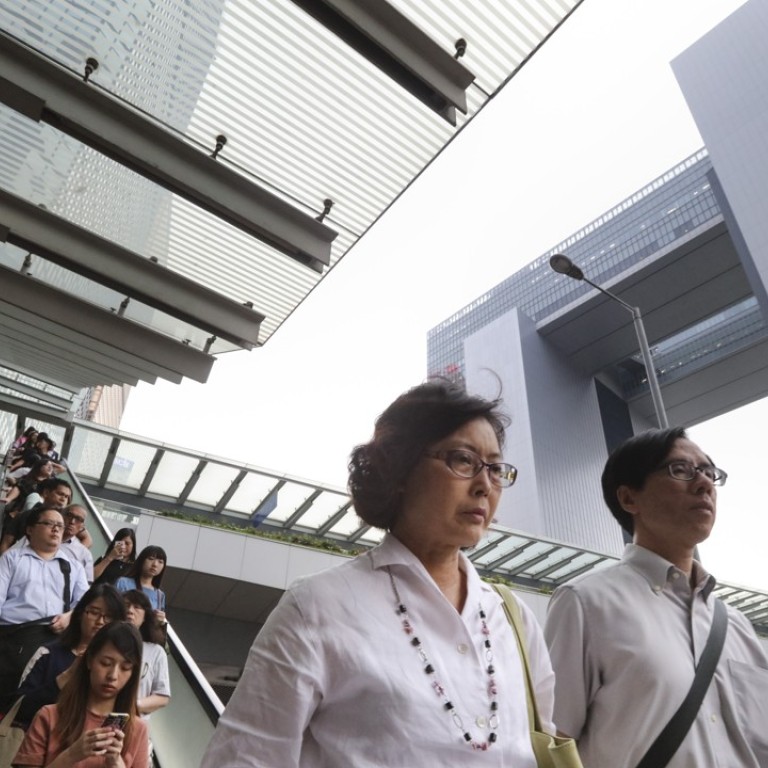
Civil servants should avoid acting like sore losers
The mechanism for determining pay rises in the public sector has served Hong Kong well for decades, so why the brouhaha now?
Hong Kong civil servants have for decades had their salaries adjusted according to changes in pay in the private sector, and for good reasons. Introduced in 1974, the annual pay trend survey provides an objective basis for wage revisions within the government, while preventing them from outstripping those in the private sector. The mechanism has, by and large, served the city well. Nonetheless, it is subject to challenge by civil service unions from time to time, especially when the outcome is unfavourable to them. In question this time is the long-standing practice to deduct a specific percentage from the pay trend figures to offset the rise for staff who are given increments as they move up the pay scale. As the number of retirements and new recruits have increased in recent years, that percentage eats into the pay rises.
As a result, the city’s 178,000 civil servants are likely to get pay rises of 1.38 per cent and 2.44 per cent, depending on where they are on the ladder, instead of 2.53 per cent and 3.78 per cent as shown in the annual survey. Against the GDP growth of 4.3 per cent in the first quarter and an inflation rate of 2.4 per cent last year, the coming rises – the lowest in seven years – give staff little reason to rejoice. But it should be remembered that the survey covered 156,000 workers in 111 companies over the past 12 months. If civil servants find the figures disappointingly low, it is just a reflection of what their private-sector counterparts have suffered over the past year.
The civil service unions said the figures had been distorted by the deduction for promotions and were unfair to those who had reached the top of their pay scales. Whether the government will heed their calls for a review is unclear. But officials will have a lot to explain if the government deviates from the long-established deduction, which is based on the recommendation of an inquiry into pay disputes in 1988. Although factors like inflation, staff morale and the cost of living can be taken into account when determining the actual rises, the government seldom goes beyond the pay trend figures to offer more. Given taxpayers already have to fork out billions of dollars more each year as a result of the annual adjustment, any additional rise must be fully justified.
Our civil servants are already among the highest paid in the world. But unlike private-sector employees, who often have to earn their pay rises, the government hands out increases across the board regardless of individual performance. That makes a fair and credible adjustment mechanism more important. The last thing taxpayers want is civil servants acting like sore losers whenever pay rises are not up to their expectations.

